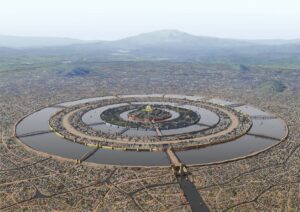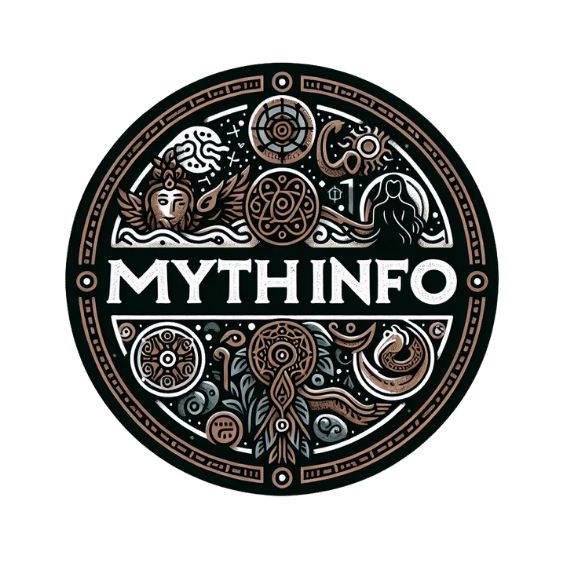Introduction
In a world increasingly driven by technology and scientific discovery, the allure of mythical places persists, captivating our imagination and shaping our worldview. From ancient legends to modern reinterpretations, these mythical locations offer a window into the cultural psyche and influence our perceptions of reality. This article explores the role of mythical places in contemporary culture, their impact on our worldview, and how these legends continue to captivate and inspire us.
The Enduring Appeal of Mythical Places
Mythical places have been a part of human culture for millennia. Whether it’s Atlantis, Avalon, or El Dorado, these legendary locations represent more than just fantastical tales—they embody the hopes, fears, and values of the cultures that created them. They serve as a canvas for our deepest desires and anxieties, often reflecting a society’s struggle with its own limitations.
In modern culture, mythical places continue to captivate our imagination. They appear in literature, film, and popular media, often as symbols of escapism or exploration. For instance, the concept of Atlantis has evolved from a philosophical allegory in Plato’s writings to a popular setting in various films, books, and video games. This transformation illustrates how these legends adapt to contemporary contexts while maintaining their core appeal.
The Influence of Mythical Places on Popular Media
Modern media has played a crucial role in keeping mythical places relevant. Movies, TV shows, and books often draw inspiration from these ancient legends, reimagining them for new audiences. J.K. Rowling’s “Harry Potter” series, for example, features the magical school of Hogwarts, a mythical place that resonates with themes of adventure, knowledge, and mystery. Similarly, the world of “The Lord of the Rings” by J.R.R. Tolkien is populated with mythical lands like Middle-earth, which have become iconic in fantasy literature.
The depiction of mythical places in media often reflects contemporary issues and values. For instance, the portrayal of Atlantis in modern films sometimes emphasizes environmental themes, symbolizing the consequences of human hubris and the need for ecological stewardship. This adaptation shows how ancient myths can be reinterpreted to address current concerns while still retaining their original sense of wonder.
Cultural and Psychological Significance
Mythical places serve as powerful cultural symbols, providing insight into the collective psyche of societies. They often represent a yearning for something beyond the mundane, a search for meaning in a complex world. For many, these legendary locations are not just fictional constructs but reflections of deeper truths about human nature and existence.
Psychologically, mythical places offer a form of escapism and solace. They provide a means of exploring our fears and aspirations in a controlled and imaginative environment. By engaging with these myths, individuals can confront their own challenges and desires in a way that feels both profound and detached from everyday life.
Mythical Places and Modern Identity
In an era of globalization and cultural exchange, mythical places also play a role in shaping modern identity. They offer a sense of continuity and connection to the past, bridging the gap between ancient traditions and contemporary life. For example, the legends surrounding King Arthur and Camelot continue to influence notions of chivalry, heroism, and leadership, contributing to our understanding of these concepts in the modern world.
Additionally, the fascination with mythical places can foster a sense of belonging and community. Fans of specific myths or legends often form groups and societies centered around their shared interests. This communal aspect underscores the enduring relevance of these tales in providing cultural and social cohesion.
The Role of Mythical Places in Education and Inspiration
Mythical places are not just limited to entertainment; they also serve educational purposes. They can inspire curiosity and learning about different cultures, histories, and philosophies. Educators and scholars often use these myths as a tool to engage students with complex concepts and encourage critical thinking.
Inspiration drawn from mythical places can also drive creativity and innovation. Artists, writers, and creators frequently draw on these legends to fuel their work, contributing to a vibrant cultural landscape. The enduring nature of these myths ensures that they remain a source of inspiration across various fields, from literature and art to science and technology.
Conclusion
Mythical places continue to hold a significant place in modern culture, shaping our worldview and influencing our perceptions of reality. From their origins in ancient legends to their modern reinterpretations, these mythical locations offer valuable insights into human nature and societal values. They provide a sense of continuity and connection, fostering a sense of wonder and exploration. As we navigate the complexities of contemporary life, the secrets of mythical places remind us of the power of imagination and the enduring quest for meaning.


